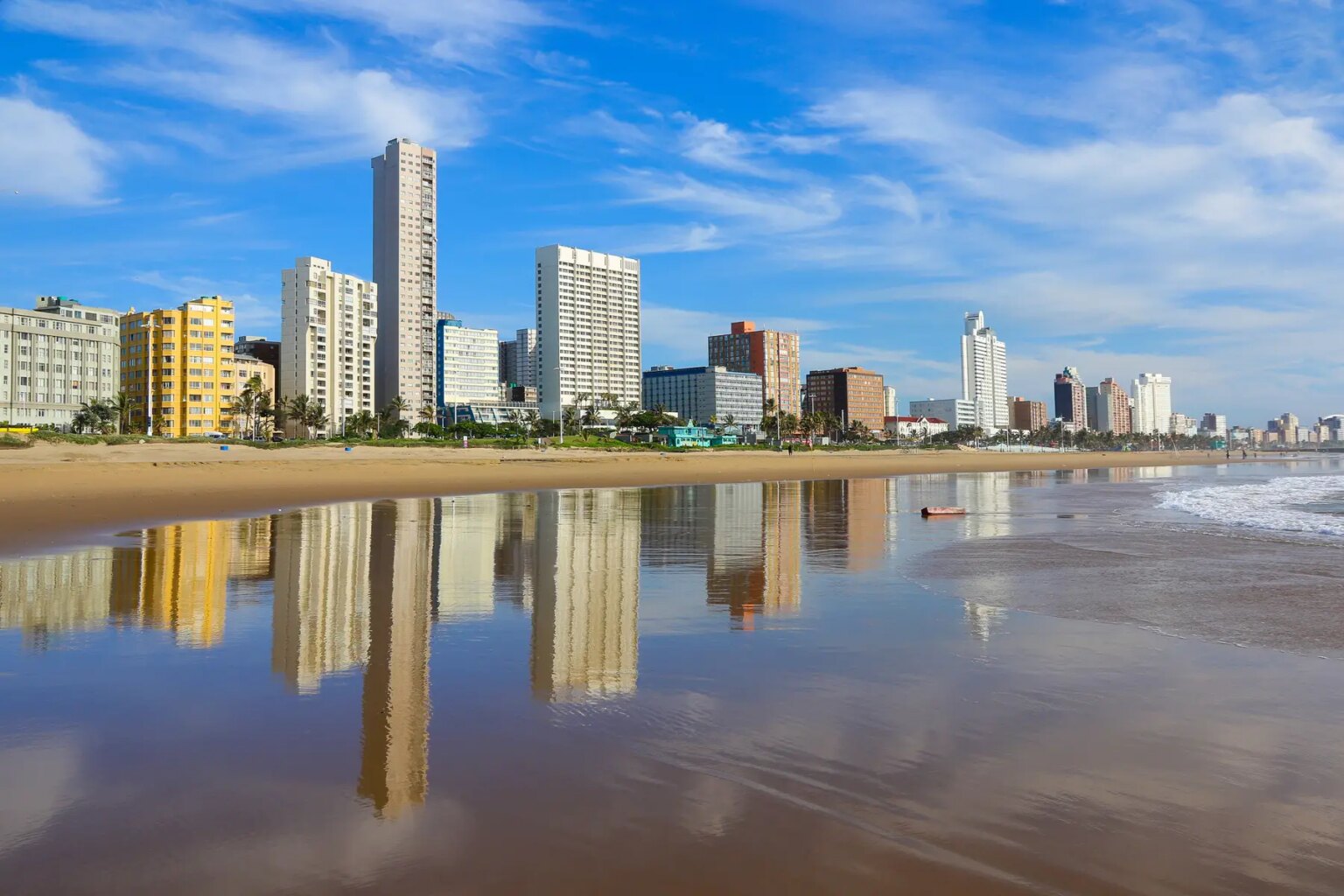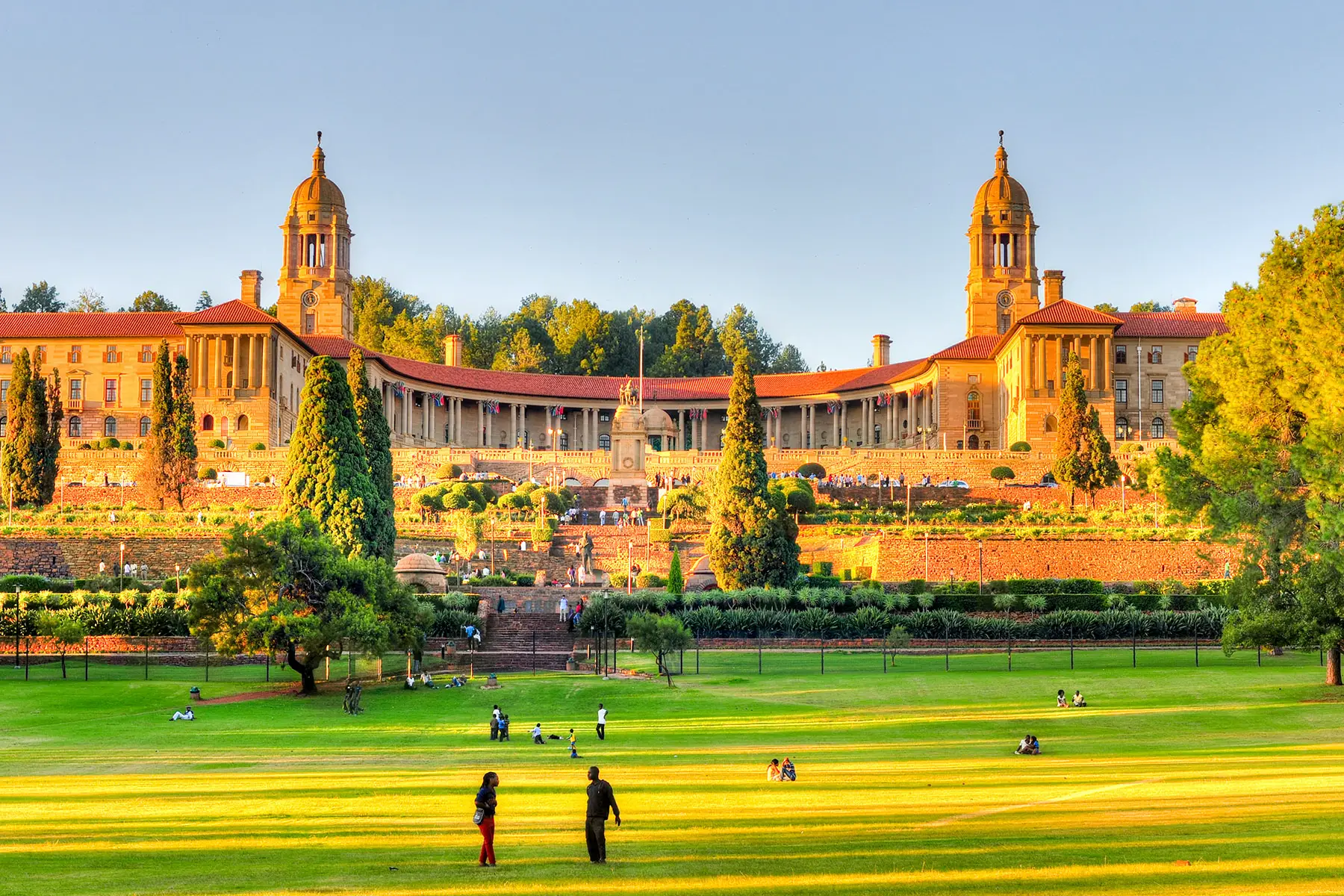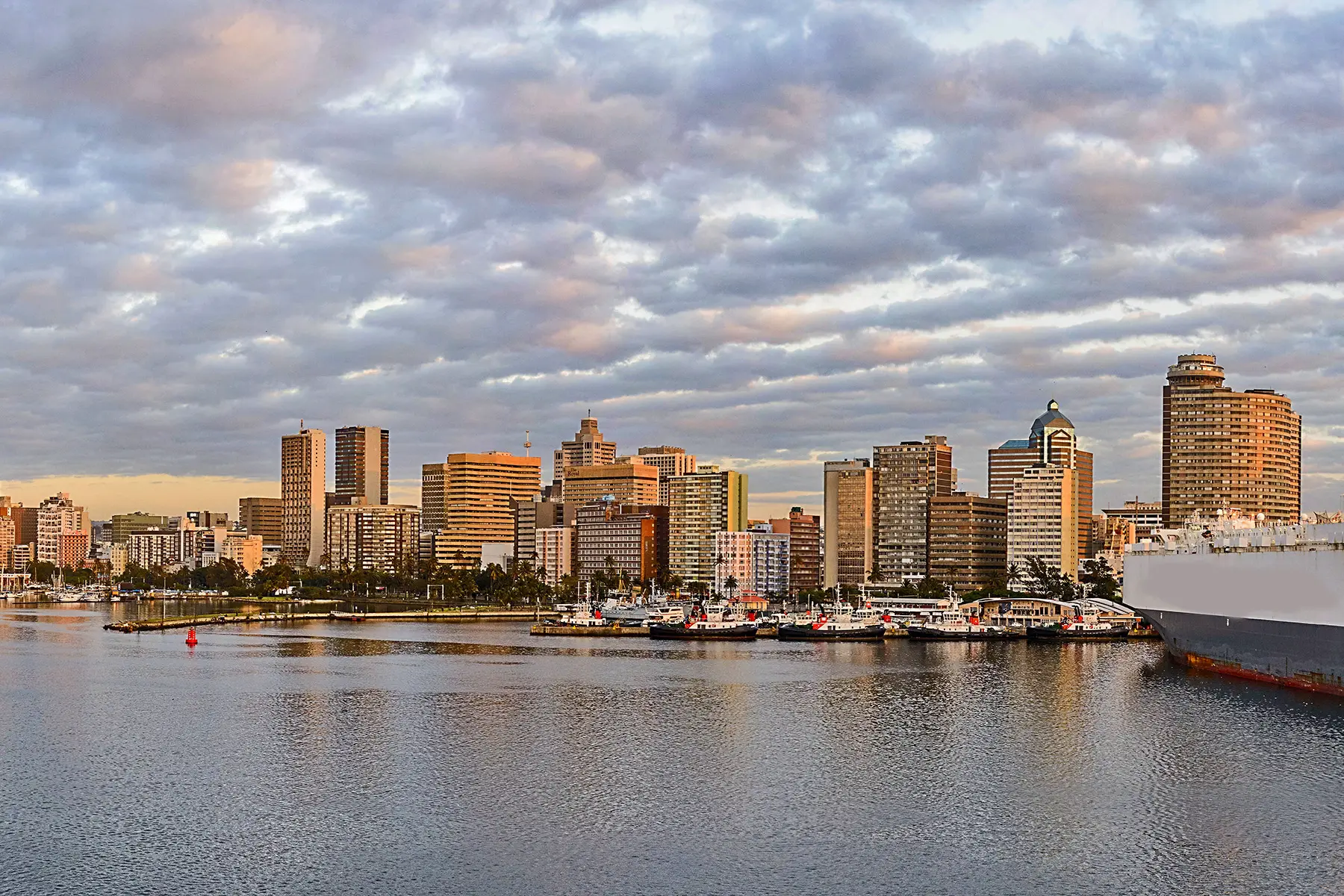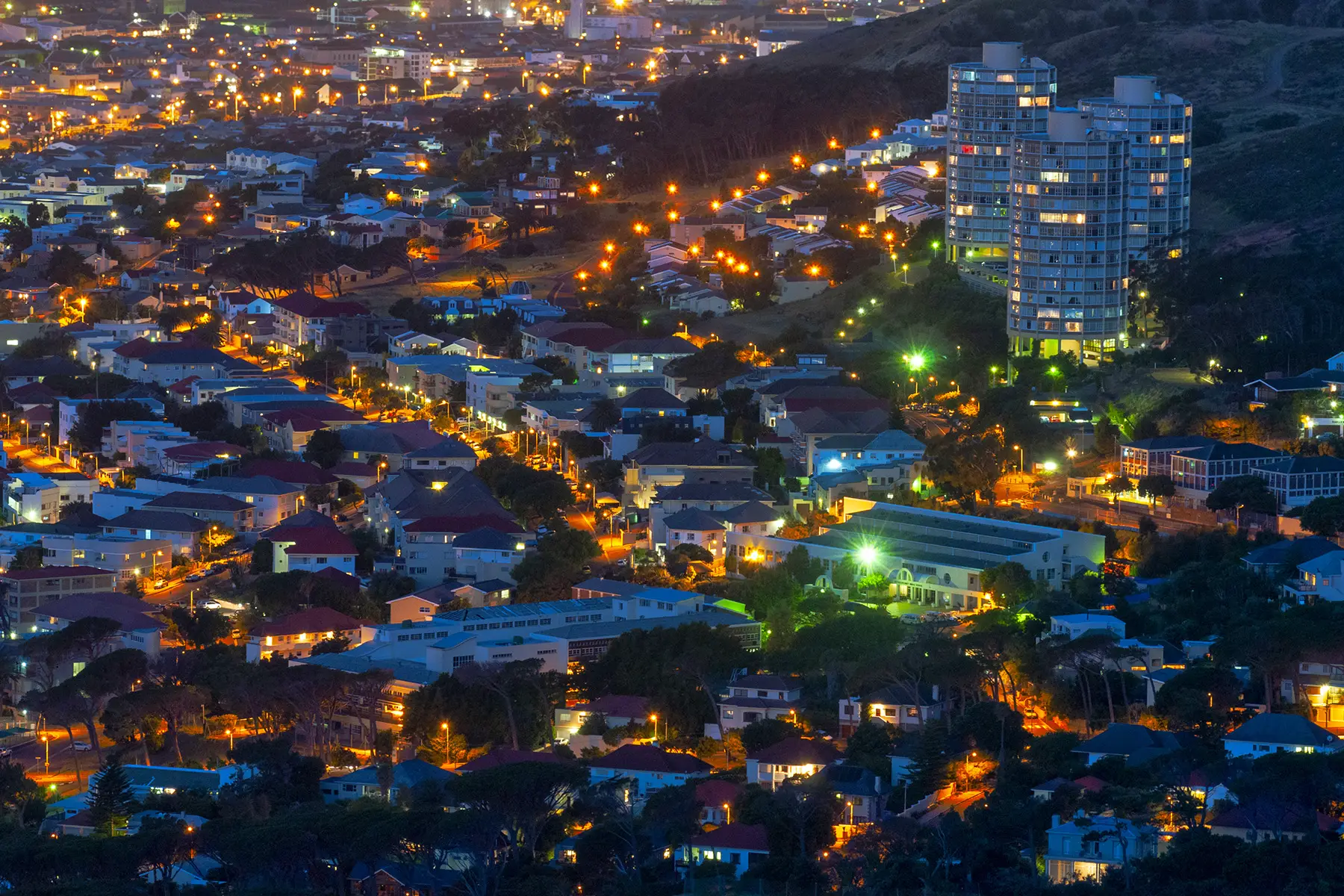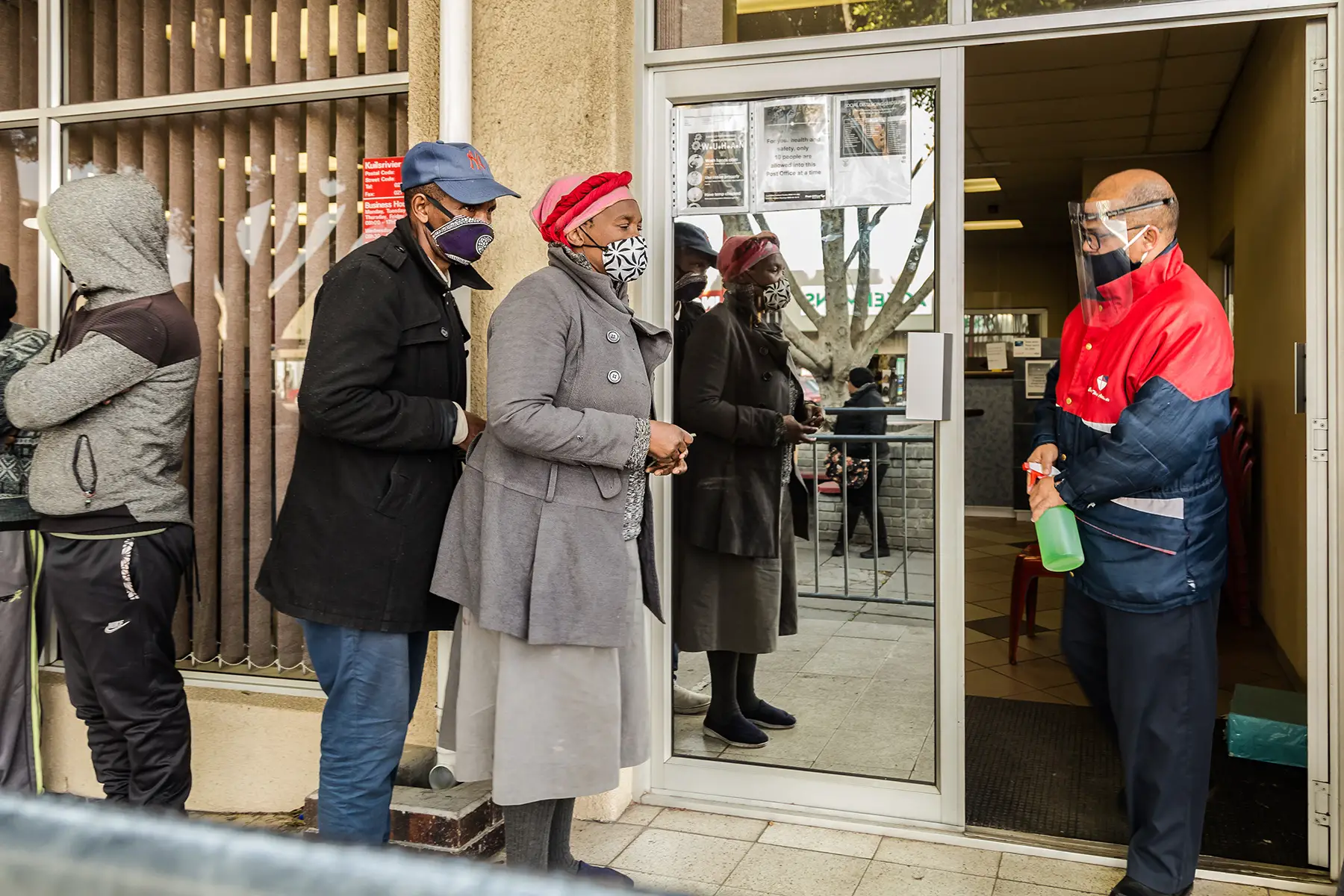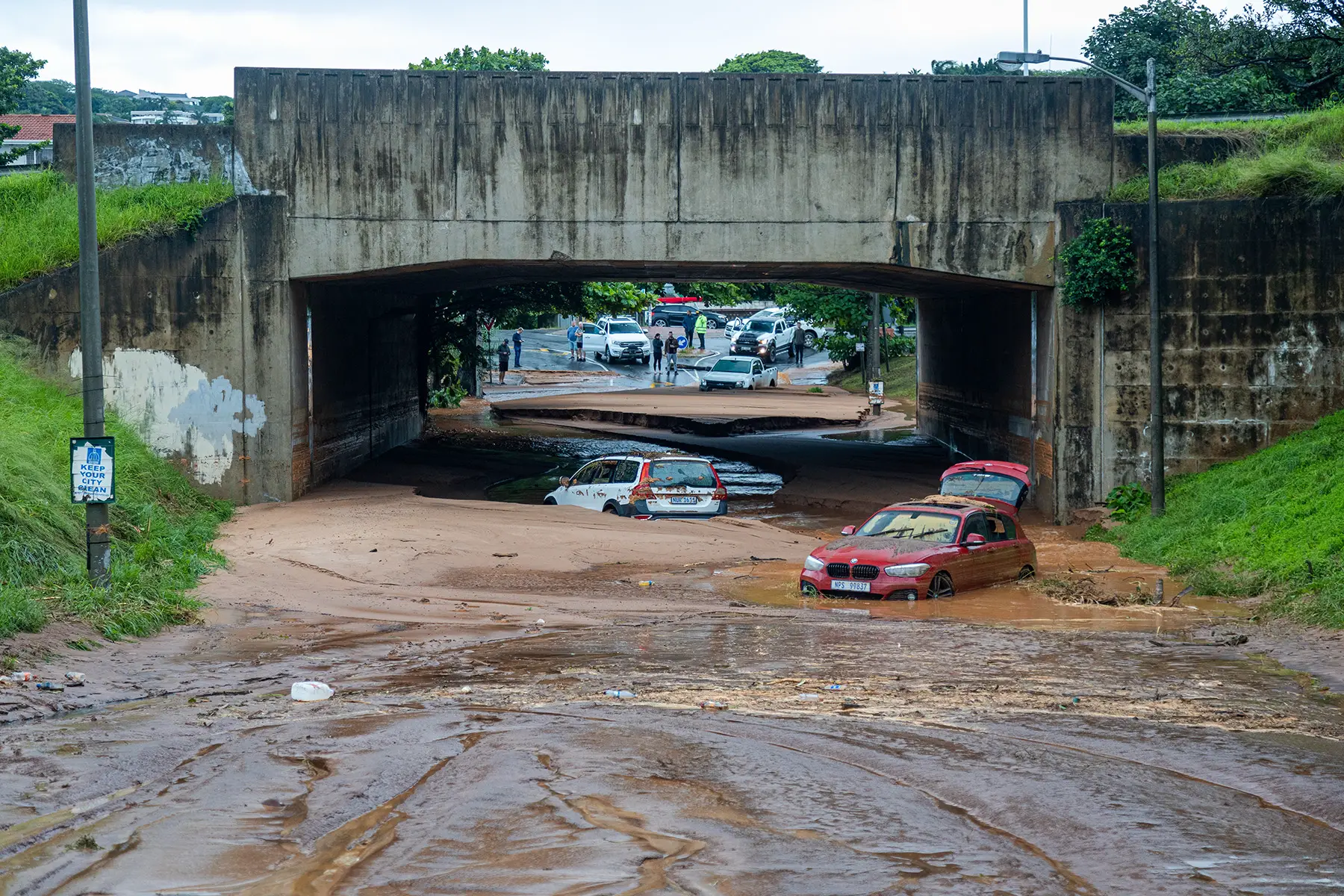If you are moving to South Africa, housing is going to be top of your list of things to do. The variety of housing in South Africa reflects the country’s wide income divide. Prices vary greatly across cities, suburbs, and provinces. From the jacaranda-lined streets of the suburbs to the gleaming glass and steel towers of posh apartments in major hubs, there’s something for every taste and budget.
So, from buying a home and getting a mortgage, to renting and tenant rights, the basics of housing in South Africa are covered below, including sections on:
- Overview of housing in South Africa
- The housing market in South Africa
- Housing laws and regulations in South Africa
- Buying or renting in South Africa?
- Renting in South Africa
- Buying a home in South Africa
- Sustainable housing in South Africa
- South African mortgages
- Selling a home in South Africa
- Building a home i n South Africa
- Useful resources
The Relocator
Jetting off to Johannesburg? Setting up home in Stellenbosch? Wherever you're heading, take the stress out of your move to South Africa by letting The Relocator find the right international shipping options for you. Compare a number of trusted international movers and get a free quote in minutes. Wherever South African life takes you, get there with The Relocator.
Overview of housing in South Africa
South Africa is a vastly unequal society with a sharp divide between rich and poor. As a result, housing in South Africa ranges from make-shift homes, often constructed from tin, in informal settlements to concrete and glass mansions in affluent suburbs. Between these extremes are a range of properties to suit most tastes and budgets. Depending on the strength of your home currency, you might find South African property is both cheaper and larger than what you are used to.
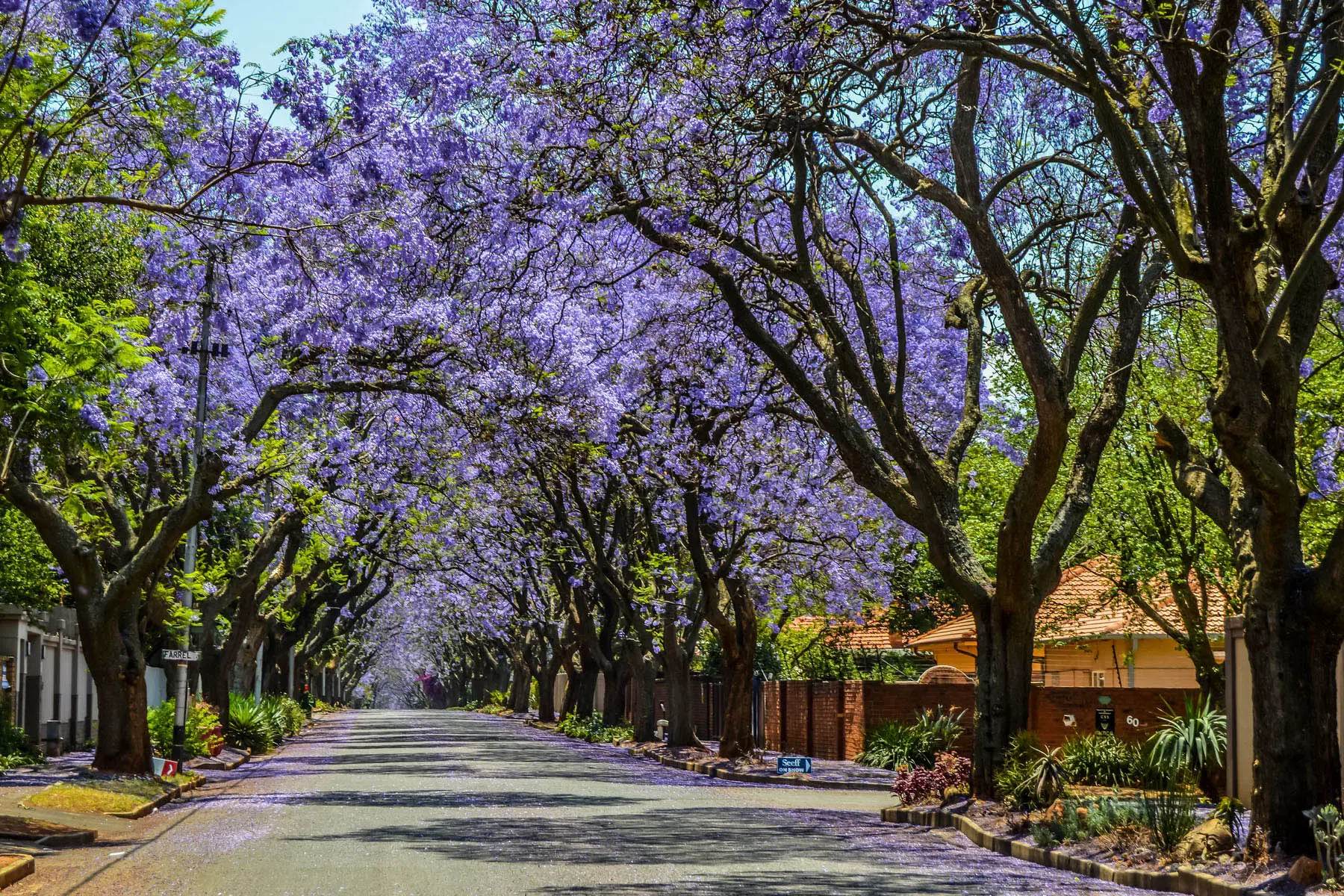
While the country’s constitution guarantees everyone’s right to adequate housing, there is a housing shortage. The Department of Human Settlements reports that the government has built 3.5 million free homes since the advent of democracy in 1994, but there is still an estimated backlog of two million more.
Gated communities
Most South Africans (84%) live in formal dwellings. Around 11.4% live in informal housing. These are mostly in informal settlements on the outskirts of towns and cities. Some 4.3% live in traditional homes in rural villages. That’s according to Statistics South Africa’s annual General Household Survey for 2020. It also shows that 63.5% of households live in homes that they own outright. While 7.7% are still paying off their mortgages. A further 17,7% are renters and the rest live rent-free.
As with other parts of the world, housing stock varies. You will find apartments, detached houses, semi-detached houses, and townhouses. South Africa has deep inequality and fairly high crime rates. As a result, the country has the second-highest number of gated communities in the world. Only the United States, with a population six times larger, has more. And, like the US, South Africa is awash with malls. There were 2,000 of them before COVID-19. There is a trend toward live, work, and play mixed-use developments. This means more high-priced apartments, with access control and security, springing up above business and entertainment hubs.
Keep in mind that the terminology of real estate agents in South Africa might differ from your home country, so ask your agent what these spaces typically entail.
The housing market in South Africa
The residential property market is currently one of South Africa’s more resilient sectors. Like other parts of the world, interest in property spiked due to COVID-19.
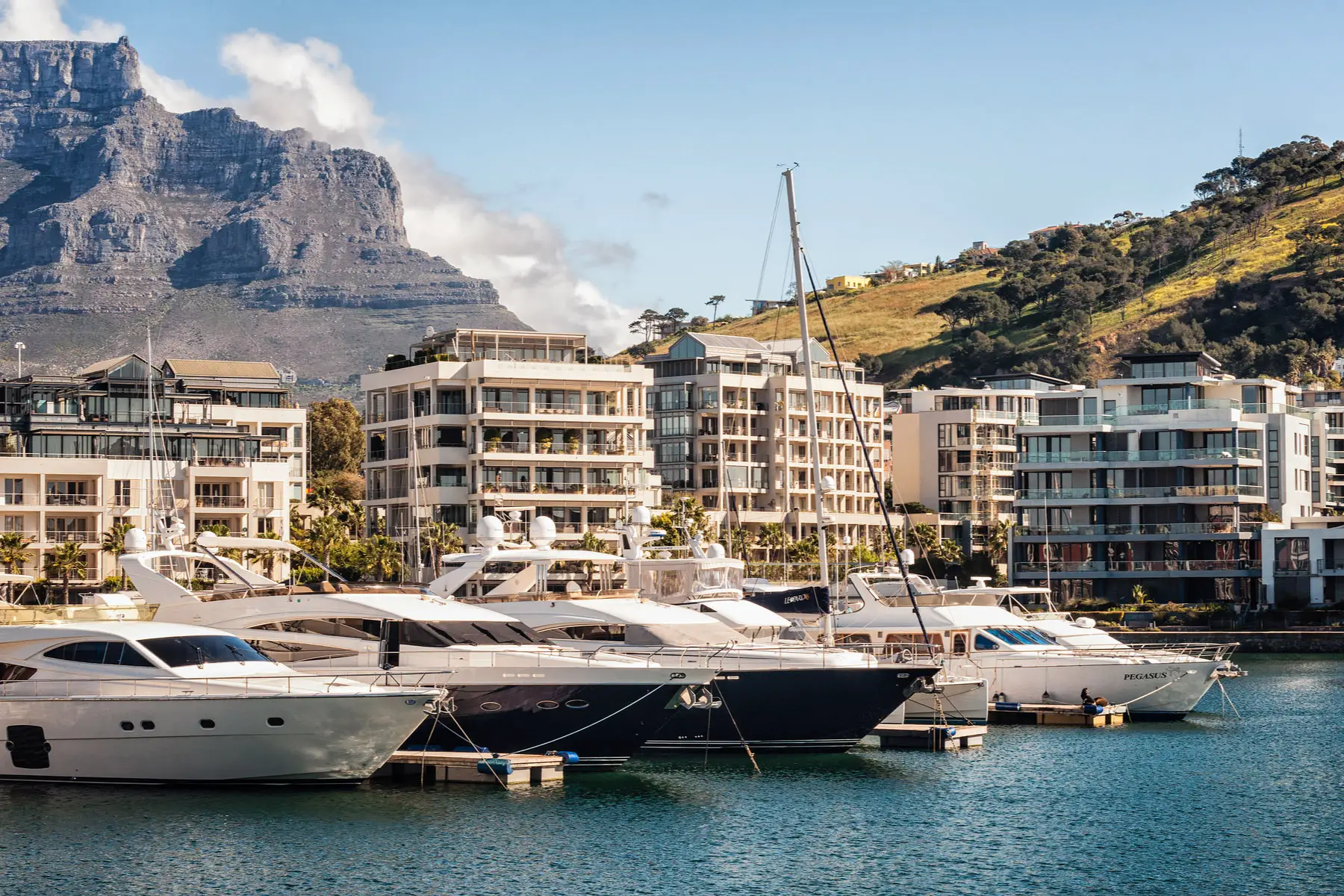
As a result, South Africa’s residential market got a shot in the arm. Overall, prices rose by 3% in 2020. With pent-up demand and low interest rates fueling buying. In 2021, this trend accelerated. For example, the price of a medium-sized apartment rose by 4.61% in April 2021 from a year earlier. According to First National Bank (FNB), this was the biggest year-on-year growth in four years.
Average prices
The average price of a sectional title home, such as an apartment or townhouse, reached R1,056,417 in the third quarter of 2021. That’s an increase of 9% compared to the same period in 2020. Over the same period, the average price of a freehold home reached R1,352,712. This is a 21% increase in prices over the same period in 2020.
Location, location, location
According to the latest PayProp Rental Index, the average rent in South Africa for the first quarter of 2020 was R7,786. However, average rentals vary widely from one province to another. From a low of just R5,222 in North West to a high of R9,171 in the Western Cape. Keep in mind that location matters. So, expect to pay much more than the averages mentioned above to rent a place in a top neighborhood. For example, on average a three-bedroom unit in Johannesburg costs R8,250 a month. However, the lowest rental costs are in Yeoville at R4,800. While the Sandton area has the highest rental costs at R13,250.
In addition, when looking to rent property in South Africa be aware that cities are significantly more pricey than rural areas.
Housing laws and regulations in South Africa
There are no restrictions on foreigners owning homes in South Africa. That is, as long as you are in the country legally. Generally, foreign-born residents are subject to the same laws as South African nationals.
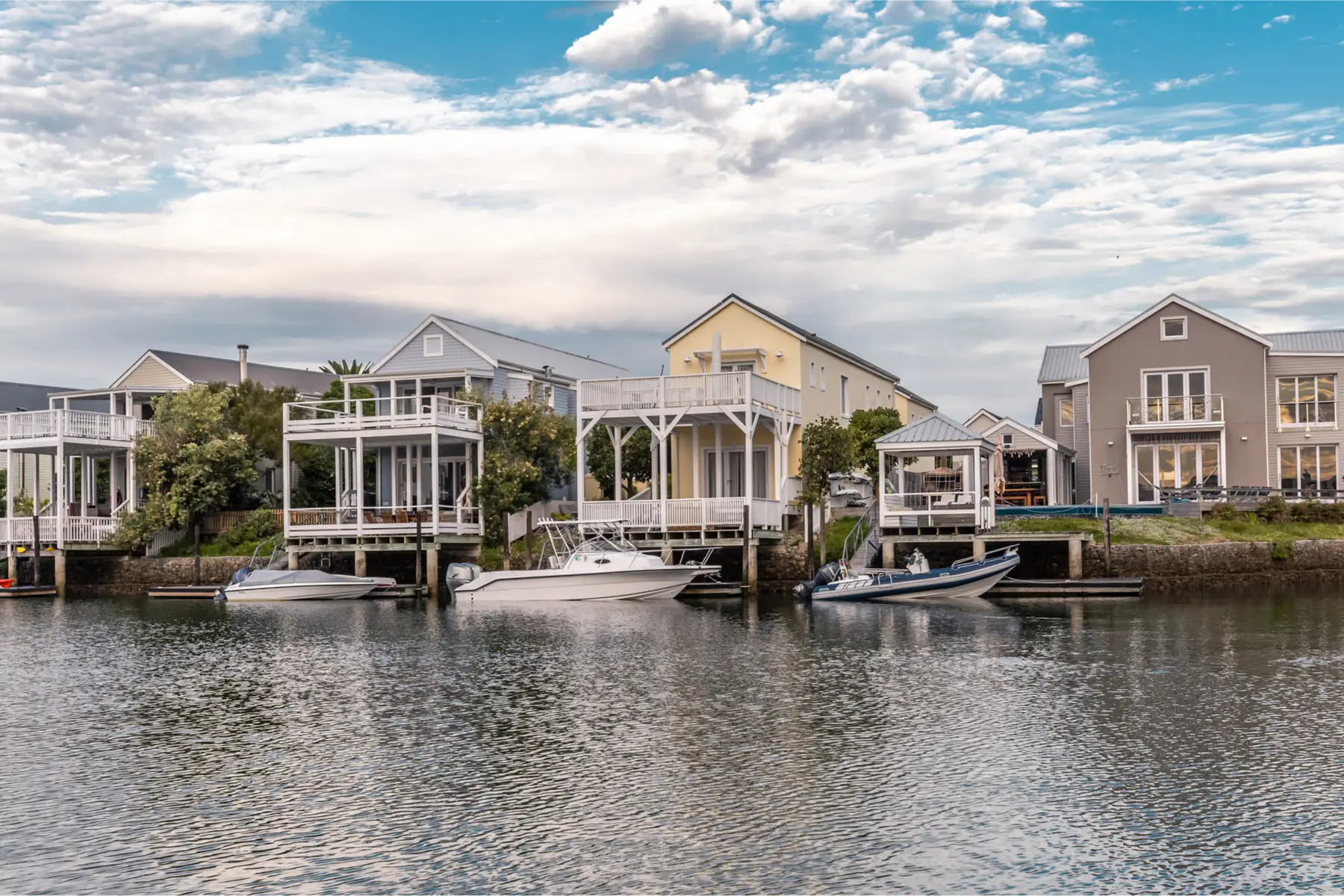
Non-residents must have the relevant South African visas and permits if they intend to live on their property for extended periods. The visa rules that apply to you will depend on things like your country of origin and your length of stay.
Once you buy property in South Africa, you are listed as the owner at the Deeds registry. South Africa’s property registration system is highly regarded.
Rental laws
Anyone can rent housing in South Africa if they are living in the country legally. If you rent in South Africa, you will receive a rental contract that details the rights and responsibilities of the landlord and tenant. South Africa has strong tenant protection laws.
Building laws
Those with the right to buy South African property are also allowed to build their own home. And while building your home in South Africa is a viable option, the financial benefits of doing so are open to debate.
Unlike in some countries, there are no government incentives for people to build their own homes. While land is relatively cheap, so too are existing properties. All building contractors must register with and comply with the standards of the National Home Builders Registration Council (NHBRC). All new homes must be enrolled with the NHBRC at least 15 days before the start of construction.
Buying or renting in South Africa?
Any expat looking for housing in South Africa will need to decide whether to buy or rent. There are benefits to both. Much depends on your personal preferences and finances. Other factors such as the housing market and economic climate also come into play.
First off, renting gives you a lot of flexibility. You can radically change your life plans at any moment – or at least with a month’s notice. And you don’t have to carry the costs of regular maintenance. It can also be cheaper to rent.
Having said that, buying a home comes with some attractive benefits. It gives you a greater sense of stability and security. Owning a home can be a good investment. And you’re free to change your home as you want. Of course, with great power comes great responsibility. You have to maintain your home. And it’s harder to change your life plans.
Going from tenant to homeowner is a big step. It’s important to know all the additional costs involved before you work out your ideal price range for a property. More detail on both these housing options follows below.
Renting in South Africa
While it’s possible to rent homes privately in South Africa, most lettings are conducted through real estate agents. Renting a home through an estate agent can give you extra peace of mind. Agents in South Africa must register with the Property Practitioners Regulatory Authority (PPRA). Many are also members of the Institute of Estate Agents of South Africa.
If you’re looking for accommodation to rent in South Africa, you’ll find plenty of choices to suit any budget.
According to the PayProp Rental Index Annual Market Report for 2021, the Western Cape is the most expensive province. The next most expensive provinces were KwaZulu-Natal, the Northern Cape, and Gauteng.
How to find an agent
There are plenty of national estate agencies in South Africa. You can find smaller, local, agencies by looking in the white pages or yellow pages. You can also search for real estate agents in the Expatica Directory. Many of the country’s major brokers are affiliated with international agencies. Expect to be asked to provide evidence of employment, salary, and residency status.
Of course, you can always trawl the internet. These are some useful sites for finding a place to rent:
South African social housing
In South Africa, social housing is a rental or cooperative housing option for households earning between R1,501 to R15,000 per month. Social housing projects are managed by accredited institutions.
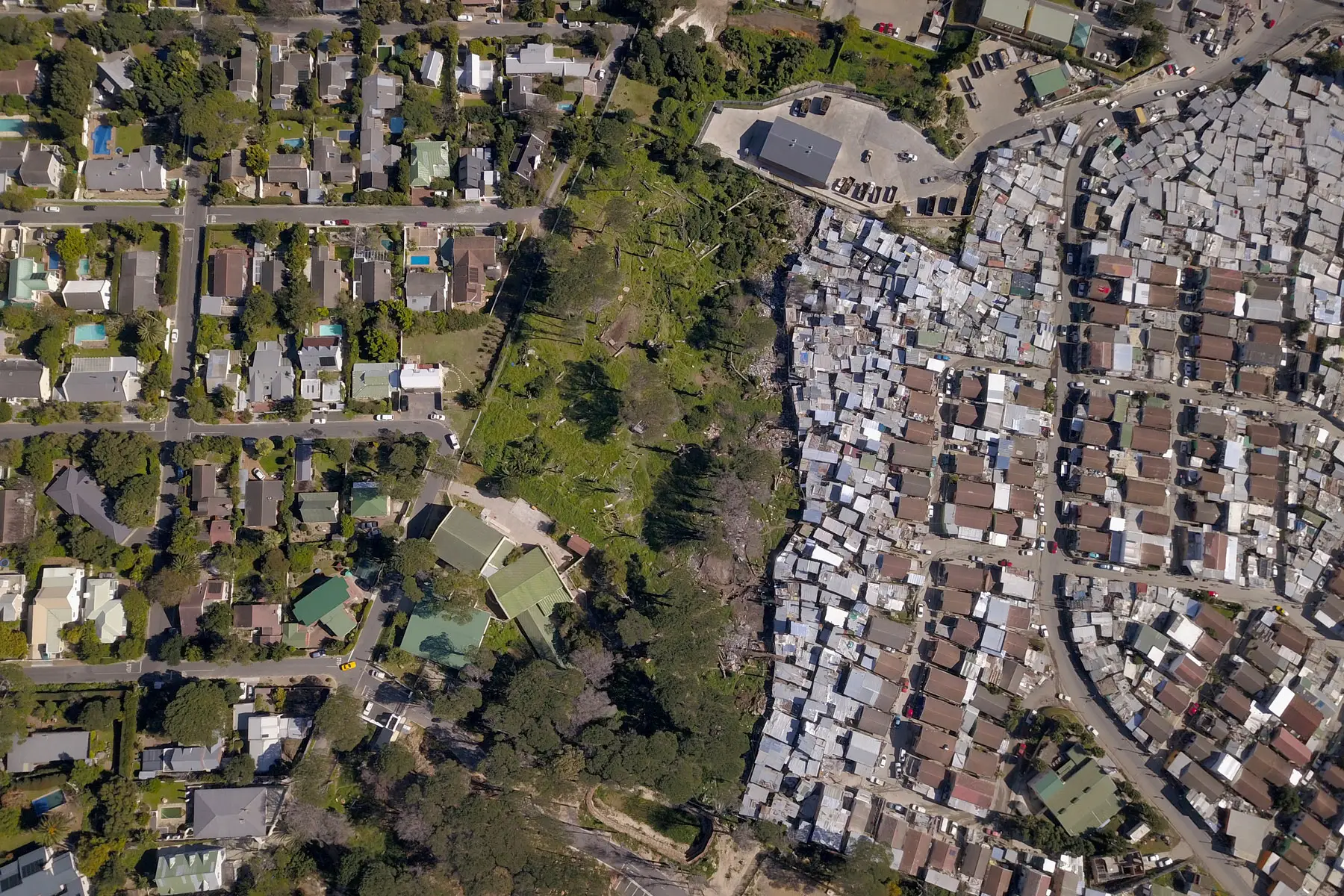
You qualify for this subsidized program if you’re:
- A South African citizen or have a permanent residency permit
- 18 years or older
- Married or living with a partner
- Single or divorced
- Have financial dependents living with you
There are about 35,000 social housing rental units, despite the huge demand.
Renting out your property in South Africa
If you wish to keep your property in South Africa as an investment or you intend to return to live in the country, you will get the same rental yields as anyone else.
If you want to rent out a South African property, you can do it through a real estate agent or online property portal. Fees vary depending on the route you choose. Online portals tend to be cheaper, but you will receive less of a service. For example, you’ll have to conduct viewings, liaise with, and vet potential tenants yourself. This might not be practical if you are out of the country.
Buying a home in South Africa
Buying a house in South Africa is stats here here here re foreign buyers
High interest rates, additional purchase costs, and capital gains tax mean homeownership is less appealing for expats who aren’t planning on living in South Africa for the long term.
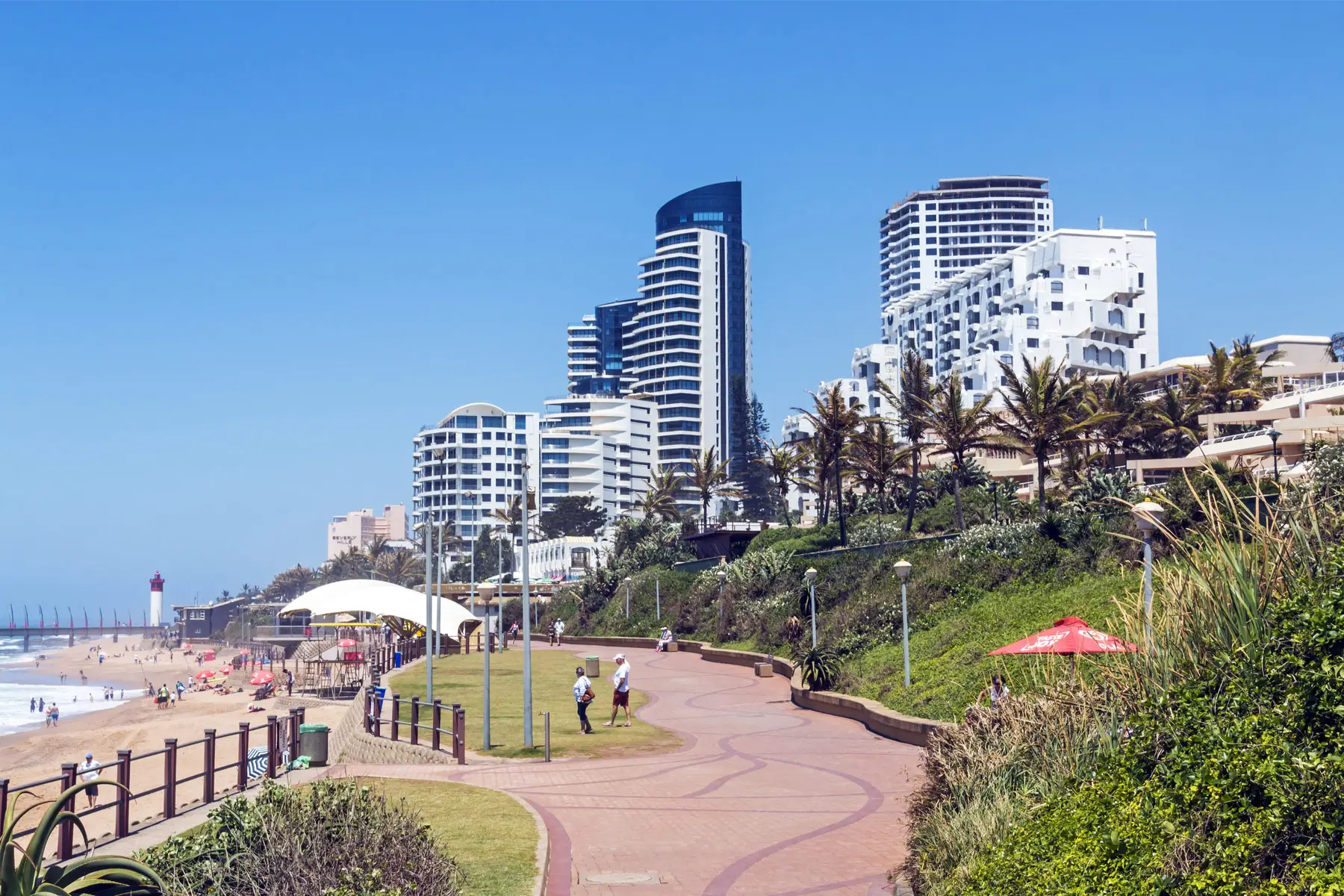
If you are tempted by houses for sale in South Africa, there are no restrictions on foreigners buying property in South Africa. However, lower mortgage limits typically apply.
Keep in mind that you will also have to pay transfer duty.
Gains and taxes when you sell
Although you might consider property in South Africa to be cheaper than in your home country, be aware that when it comes time to sell you might have to pay capital gains tax when you sell. The rules differ for residents and non-residents. One rule that does not change is that capital gains tax applies to all second homes.
Residents
For residents, the South African Revenue Services (SARS) allows for an R2 million tax-free gain on the value of primary homes. Any proceeds beyond that R2 million threshold will be subject to tax.
Non-residents
However, an automatic capital gains tax withholding is mandatory whenever a non-resident sells property valued at over R2 million. SARS says a non-resident seller can make submissions as to why they feel no tax, or less tax, should be withheld. However, the proceeds from your property will likely attract a tax of 7.5% (for individuals).
Registering your property
On average, it takes around three months from the date of sale until the property is registered in the new owner’s name.
Once you find a home you want to buy, you’ll need to make an offer, arrange your finances (which may involve taking out a South African mortgage and hire attorneys to deal with the contract and complete the sale. It is important to understand the legal aspects of registering your bond and transferring the property to your name
Sustainable housing in South Africa
South Africa has increased its efforts in green housing in recent years in line with international trends. A big influence on this trend is the rapid increase in South African utility bills in recent years.
South African electricity tariffs increased by more than 510% between 2007 and 2020. The most recent tariff hike (April 2022) was 9.6%. Similarly, average municipal water tariffs have soared by almost 1,300% between 1996 and 2020.
Greener solutions
New homes are being built to greener standards and frequently exceed the regulatory standards for energy efficiency. Examples of the trend towards greener homes can be seen in the affordable housing segment as well as many high-end eco estates currently being built in a number of locations in South Africa. From smart meters that can detect leaks to solar energy for heating and lighting.
South African mortgages
There are no legal restrictions on expats buying property in South Africa. But conditions on mortgages are stricter for foreigners who are non-resident. For example, all loans to foreign residents and non-residents need to be approved by the South African Reserve Bank.
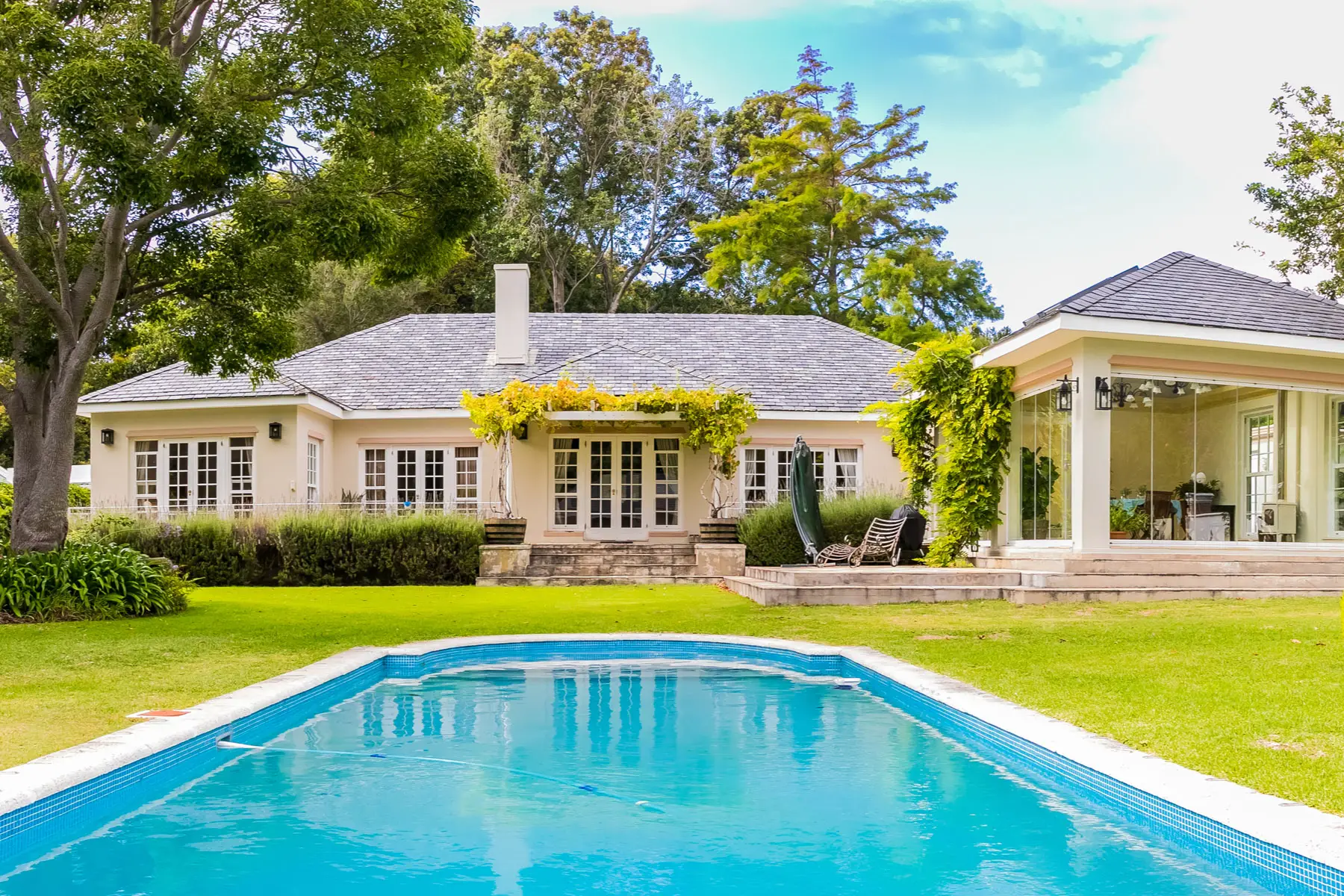
Also, foreigners can usually only borrow up to 50% of the value of the property and must pay the other 50% as a deposit.
Terms tend to relax slightly if you can prove you have a South African residence or a work permit, but this varies from bank to bank. Some lenders may require you to set up a South African bank account if you don’t already have one so that your mortgage payments can be debited.
Interest rates
If you are given permission for a loan by the South African Reserve Bank and pass the necessary financial checks, you will be able to take out a South African mortgage.
A succession of rate cuts by the South African Reserve Bank (SARB) in 2020 brought the prime interest rate to a record low of 7%. In March 2022, the prime rate stood at 7.75%.
Mortgages in South Africa are mostly provided through banks, although you can also find independent brokers and agents. Your lender arranges the loan for you and tells you what documentation you need to provide.
Selling a home in South Africa
Selling housing in South Africa typically involves the following stages:
- Decide what route you’ll be taking to sell.
- Choose a selling price for your property.
- Prepare your home for sale.
- Choose a reputable conveyancer in your area.
- Market your home extensively.
- Hold viewings and show days.
- Finalize the sales agreement and close the deal.
Your estate agent and conveyancer will walk you through all the declarations you will need to make to the revenue service, banks, and other entities.
Building a home in South Africa
Those with the legal right to buy South African property can also buy land. This means you can build your own housing in South Africa and design a dream home. However, as with buying, building costs vary widely from one region to another.
Houses are measured in square meters. The overall cost of building the home will usually be a combination of the rate per square meter, construction costs, and interior fittings. Also, add the fees paid out to professionals such as the quantity surveyor and architect.
Estimated price ranges are R8,000 to R13,000 per square meter for a high-end, market-quality house. R5,000 per square meter for lower-cost housing. R20,000 per square meter and above for high-quality homes.
Useful resources
- Mortgage Market – comparison site for home loan/mortgages
- Housing Finance in South Africa – information on the housing finance sector of South Africa
- Private Property – provides information about the South African real estate market.
